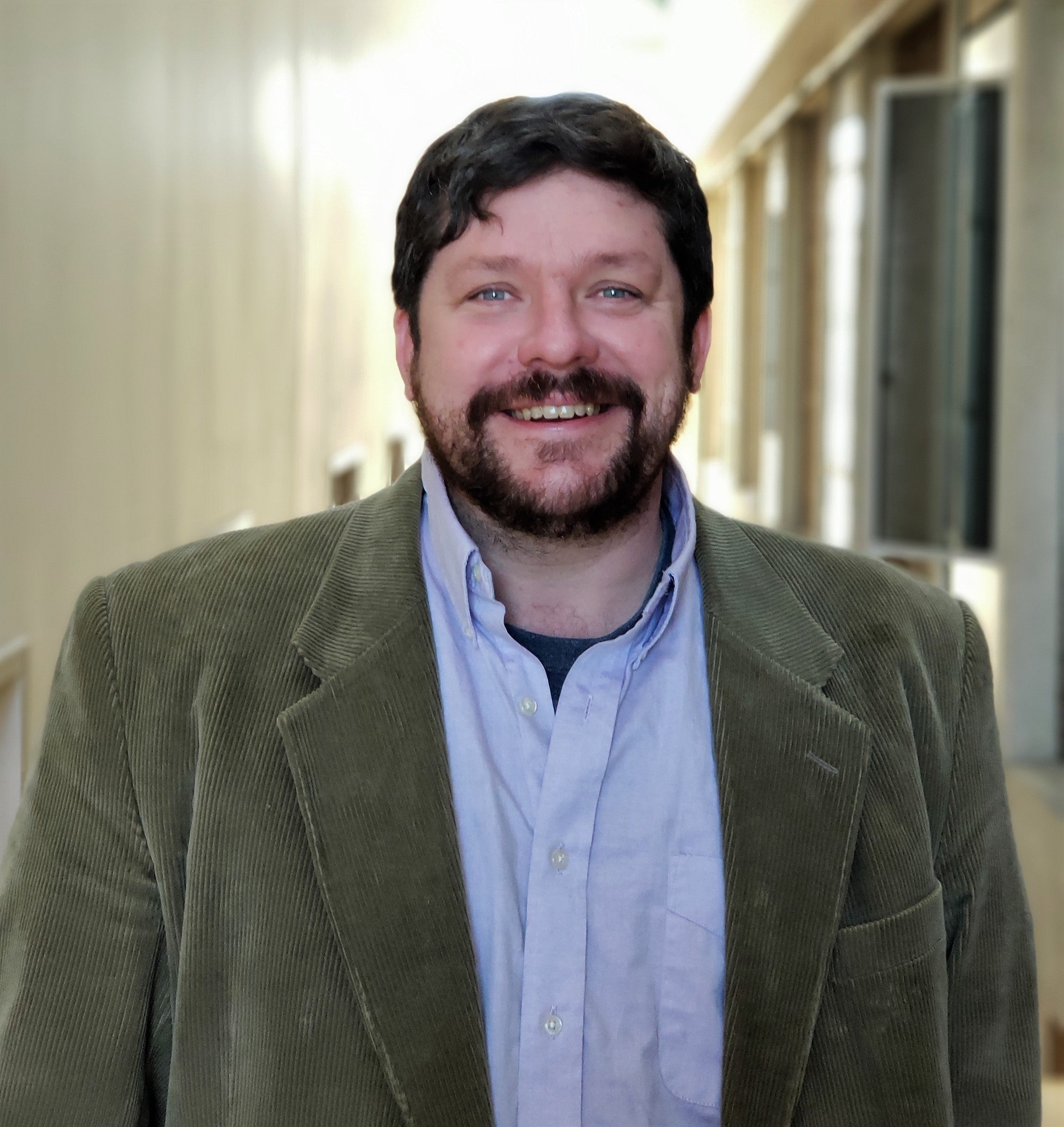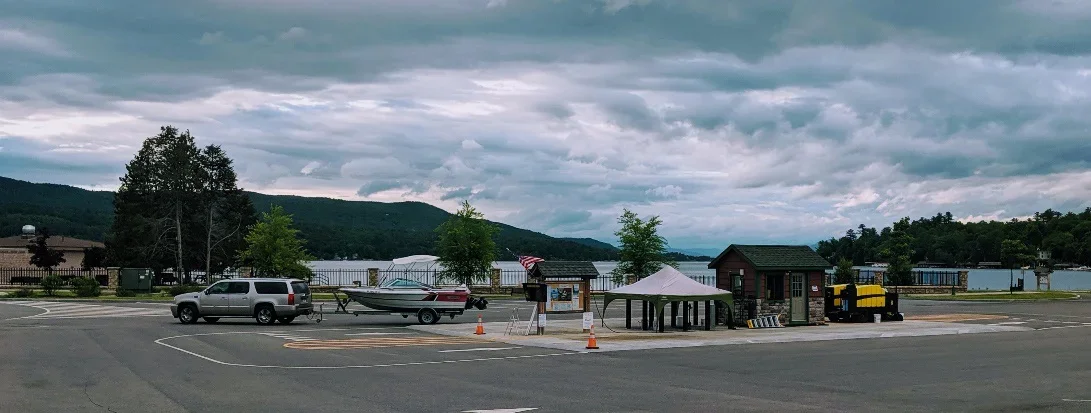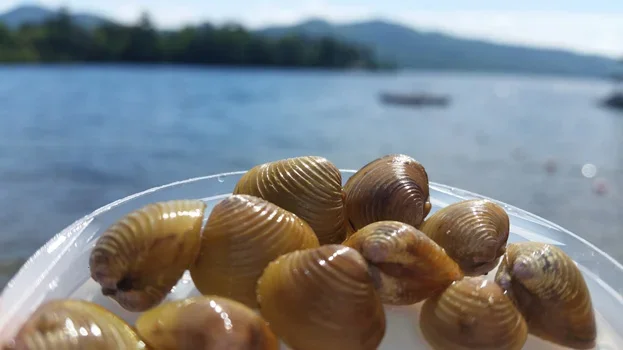
About
Dr. Farrell received his Ph.D. in Biology from Rensselaer Polytechnic Institute in 2013, where his doctoral work in the Dr. Nierzwicki-Bauer and Dr. Boylen’s labs involved hydroacoustic analysis for data related to determining invasive species presence and documenting the biological recovery of ecosystems following acid deposition in a remote Adirondack lakes. Dr. Farrell remained as a post doctoral research associate in Dr. Nierzwicki-Bauer’s lab studying ecosystem processes in Lake George at the Darrin Fresh Water Institute. Dr. Farrell joined the faculty of the Department of Biological Sciences at Rensselaer Polytechnic Institute as Lecturer in August of 2018.
Ph.D. Rensselaer Polytechnic Institute, 2013 - Biology
B.S. Union College, 2003 - Geology
Postdoctoral Research & Training
Postdoctoral Researcher, Rensselaer Polytechnic Institute, 2013-2018 - Biology
Research
My research interests include biology, limnology and underwater ecology processes. Specifically, I am interested in how lakes change relative to anthropogenic stressors including invasive species movement, eutrophication (nutrient enrichment), salinization and climate change. The majority of my research is conducted at Darrin Fresh Water Institute and focuses on Lake George and other Adirondack lakes.
Select ongoing projects include:
ARMOR - Advanced Response Model for Organism Removal

Freshwater ecosystems are especially vulnerable to invasive species, which affect ecosystems and overall water quality. Many aquatic invasives are spread by boats moving between lakes. Thus, boat inspection and washing stations are an effective approach to remove invasives from boats before they enter a lake. At boat-washing stations across NYS, boats are subject to a surveys and inspections. Using these data, we developed a machine-learning model to predict invasives on arriving boats. We can correctly identify 96.5% of invasive arrivals. Identifying high-risk boats coupled with cleaning protocols will improve the effectiveness of detecting and mitigating new invasive introductions.
Asian Clam Reproduction and Growth

Asian clams are an invasive species that can disrupt lake ecosystems by altering nutrients and impacting native organisms. DFWI researchers first identified Asian clams in Lake George in 2010 and they are current studying clam reproduction and growth. To examine reproduction, clams are collected from three locations each week from (May-December). The clams are dissected and examined for juveniles. At these same locations, clam growth is examined by collecting ~200 clams and determining their length and width. This study will provide insight into the population dynamics of Asian clams, which will ultimately inform management techniques for controlling them.
Teaching
BIOL 1010 - Introduction to Biology
Introduction to biological systems. Discussion of problems associated with biological organization, scaling, and hierarchy. Major topics covered include evolution, genetics and medicine, and ecology. The course considers the biological components of various environmental, social, and individual problems. Course is taught using both traditional and research-based pedagogical methods.
BIOL 4200 - Biostatistics
An introduction to the concepts and techniques of modern statistics. Computer-based, in-class sessions will emphasize hands-on application of statistical techniques using data and examples drawn from the biological and medical sciences. Pre-class, online exercises will prepare students for in-depth classroom explorations. Topics covered will include sampling, regression, analysis of variance, and factor analysis, MANOVA, maximum likelihood methods, discriminant analysis, time series analysis, and forecasting. The final project requires analysis of a major research-related data set and write-up of results in the format of a scientific paper.
BIOL 4220/6220 - Machine Learning for Environmental Biology
This course is designed to create an applied learning environment to introduce students to large scale datasets in the environmental field and learn advanced techniques for analyzing them. Students will learn multivariate data exploration techniques, evaluate the quality of large datasets, and analyze the data using machine learning techniques. Specifically students will propose, develop, and finalize projects where they will apply machine learning approaches to datasets to understand complex environmental biology processes. Along with these topics, students will learn to critically read current scientific literature relevant to their projects.
BIOL 4860 - Evolution
Phylogeny and the patterns of evolution in the fossil record, geography of evolution, biodiversity, origin of genetic variation, genetic drift, natural selection and adaptation, genetic theory of natural selection, evolution of phenotypic traits, conflict and cooperation, speciation, fitness, coevolution, genomic evolution, evolution and development, macroevolution, evolutionary science and society. Lectures, student presentations, and peer learning.
Publications
The following is a selection of recent publications in Scopus. Jeremy Farrell has 10 indexed publications in the subjects of Medicine, Environmental Science, Agricultural and Biological Sciences.